- Home
- Willow Rose
Edwina Page 3
Edwina Read online
Page 3
Minna screamed when she saw her daughter's lifeless body on the ground beneath the old tree. She ran to her while everything inside of her was screaming: Please, God, don't. Please don't let this be happening; please let her be alive.
She knelt beside her daughter and tried desperately to pick Linda up, but she was too heavy. She turned her around and knew, could see with her very own eyes, that her daughter was, in fact, dead. Her head had cracked open like an egg in a pan (Oh, how she loathed herself for making that comparison at this crucial moment of her life. What was wrong with her?) and blood was gushing into the grass. Minna felt her stomach turn and threw up in the grass next to her daughter's body.
When she was empty, she threw herself on top of her daughter and screamed for help.
Exactly how she got to the hospital, she couldn't tell afterwards. It sort of just happened. People were suddenly surrounding her, feet, hands on her body trying to drag her away from her daughter, then she was lifted into the air, and soon she was driving, and then more people were talking to her, hands on her body, examining her to see if she was hurt as well, then she felt a pinch, a needle through her skin, and after that she went numb. Comfortably numb and she didn't feel the pain anymore.
But the calmness didn't last long. When Minna next opened her eyes, she became very aware of what had happened. The feeling rolled in over her like waves of pain and agony. Her body couldn't handle it all at once and it curled up in the hospital bed, in spasms while she threw up again, this time all over herself.
Nurses came running, cleaned her up, gave her a shower and a new bed, and then they told her they were going to give her another tranquilizer, and soon she fell asleep.
She wanted badly to stay in her dream once she was ripped out of it hours later. She wanted to stay sedated, numb, and on that beach she was dreaming about. But she wasn't allowed to. A doctor was talking to her, telling her that he was sorry for her loss, but had good news about her husband.
"He's getting better, Mrs. Bastrup. You can take him home with you soon. As it turned out, he didn't have HIV as we first presumed. It was something different that only acted like the HIV virus."
Minna looked at the doctor, and then sighed deeply. It was good news, and had it been several days ago, she would have been very happy, ecstatic even. But the turn of events, the loss of her daughter, had changed everything (She couldn't even think it without her body reacting violently). Now she wasn't so certain she wanted to have him back; hell, she was no longer even sure she wanted to go back to the house again.
"Dan?" she asked with feeble voice. "Where is Dan?"
"Your son is fine. He was here yesterday and told us he will be back tomorrow. He's been sleeping at a friend's house. He is a good boy, Mrs. Bastrup. No need to worry about him. Now we need to get you back on track. You have suffered a terrible loss, Mrs. Bastrup, but there is nothing wrong with you physically, so I have to release you today. I want to make sure that you see your own physician and tell him about your loss, and I'll set you up with a counselor here at the hospital, and her grief group that you can attend and talk about your loss."
Minna took the card the doctor was handing her and that she knew she was going to throw away as soon as she left the hospital.
"What about my husband?"
"As I told you, he is doing much better. The fever is almost down. Once we found out what it was, well then it went fast from there. But I must say, it's the strangest thing. The disease is called Morbus Behcet; I'm not even sure I’m pronouncing it right, since it is a very rare disease. It was by luck that I managed to find it."
"But how did he get it?"
"Well, it's actually a disease that is rarely seen in our part of the world. It's mostly known in the Middle East and Eastern Europe. Has your husband been to any of those areas recently?"
"Not that I know of," she said, and thought that, as it turned out, there was a whole lot she didn't know about her husband of eighteen years, so it wouldn't surprise her if he had been to one of those places without telling her. The way she felt right now, nothing would be a surprise anymore, simply because she didn't care. She stopped caring about anything in this world the second she had realized that her daughter was gone. The slight interest in her husband's health was mostly out of duty.
"Well, we really don't know much about this disease, but luckily we do know how to treat it. Your husband has received a high dosage of prednisone to boost his immune system. The primary mechanism of this disease is an overactive immune system that seems to target the patient's own body. The primary cause is not well known. In fact, no one knows yet why the immune system starts to behave this way, but as I told you, it is very similar to what we see in patients with HIV, and therefore we immediately thought that was your husband's problem, but luckily it turned out not to be the case. As long as he takes the medicine, he should be just fine. He'll be released in a couple of hours, and then you can both go home together. But I want you to bring him in immediately if he runs a fever again."
Minna stared at the doctor, not knowing what to say. The prospect of going home with her cheating husband to a house and a yard that had killed their child wasn't enticing, to put it mildly.
The doctor looked at the chart in his hands, flipped a page, and then looked up at Minna again.
"Okay, then?"
Minna felt like crying, but there were no more tears left. She felt empty. She bit her lip and nodded.
"Okay."
The doctor patted her on her shoulder. She stared at his hand and the ring on his finger. She wondered how many nurses he had screwed without his wife's knowledge. Then she wondered why she even cared.
The doctor was fumbling with his glasses, putting them back in the pocket of his white coat. "Well…good luck…I guess," he said and smiled, his eyes flickering.
"Good luck?" Minna asked.
The doctor smiled again while exhaling. "Well…you know."
Minna nodded. "I do know. Good luck to you as well."
"Thanks."
Then he left. Minna took off the hospital gown, then picked up her clothes from the chair and started dressing herself. When she saw the blood smeared all over the apron, she paused. She touched the dried up blood gently with her finger like was it delicate, like a newborn baby's cheek. A tear left her eye and rolled across her cheek. She wiped it away with a sniff, then took the apron in her hand and tossed it in the trash on her way out.
Chapter Nine
They had just bought a house. Emma wondered if it was a little premature, but then again, if they didn't do it now, they probably never would. Emma and Paul had been together three years and Emma hoped everything would be different now that they had taken this big step in their relationship together.
It had to make a difference; it just had to.
Now he was carrying boxes and she was taking a lamp into their new house, that somehow reminded Emma of her grandparents, and that made her both feel sad and excited at the same time. Paul grunted, dissatisfied when he put down the box. Buying the house in the small town out in the countryside was Emma's idea and Paul never tried to hide his dismay with the entire arrangement. But she had been very firm on the idea and, for once in their relationship, she wasn't going to back down.
"We're buying this house; it will do us good to have a change of scenery," she told him.
"I'm not moving all the way up there, if that's what you think," he answered. "It's not gonna happen."
"Oh, but it's happening, alright," she continued, even though she knew it would end badly.
Paul put down his paper, looked at her in contempt, and then shook his head. "Nope. Still not gonna do it."
Then she had thrown a plate at him. It hit the wall behind him and shattered all over the wooden floors in their small one-bedroom apartment just outside of Copenhagen. Paul cursed and ran after her, grabbed her around the waist, and threw her to the floor. She hurt her head when she hit the ground. She slapped him across the face. He slapped her
right back. She kicked him and got up while he caught his breath, and then he pushed her backwards into the wall. She threw a stack of magazines at him, and he pulled her hair and held her down on the kitchen table while pulling her skirt up.
Then they made love on every piece of furniture in the apartment.
"So, it's a deal then?" she said, while correcting her hair in front of the mirror afterwards.
Exhausted, Paul had thrown himself on the couch with a sigh. "Whatever you want, baby," he grunted. "Whatever you want."
So here they were. In their new home, ready to begin their new lives together in a town with only three hundred and ninety-four inhabitants. Well, three hundred and ninety-six, now that Emma and Paul had moved in.
"It's a very quiet neighborhood," the realtor said when showing them the house. "The neighbors to your left are an old couple who don’t go out much and to your right lives a single woman who has three children in foster care."
There had been no doubt in Emma's mind that this was the place for them; this was the place she wanted to raise her children, and this was the town she wanted to grow old in. Paul was a city boy and had never lived in the country, and he still wasn't too thrilled about the idea; he never tried to hide that from her. As a matter of fact, they still fought about it, but Emma refused to change her mind. In the end, she had told him that if he wanted to be with her, he had to move, end of discussion. That was when he had picked up her favorite vase and thrown it at her.
"I thought my grandmother's antique armoire would look great in the bedroom upstairs, don't you?" she said, while putting the lamp down in the living room. So much space, she thought to herself. They would have to buy more furniture to fill it all out. She opened a window, and then drew in a deep breath, smelling the forest nearby and breathing in the salty air from the fjord, Isefjorden, not far away. Yes, a change of scenery was exactly what they needed for the two of them, and Paul was going to learn to love this place. Emma was certain he would.
Emma looked happily out the window and spotted a sweet little girl inside the other house. Then she lifted her hand and waved at her. The little girl waved back.
How nice, Emma thought to herself. What a great place to raise a child. Now all she had to do was find the right time and place to tell Paul her little secret.
Chapter Ten
Minna and Thomas were both silent on the way home in the taxi. They had hardly spoken a word to each other at the hospital either. Thomas preferred to stay quiet, since he knew there was no way he could say anything right, say anything to make Minna feel better. Right now, she blamed him for everything, and if that made it easier for her, then he was willing to take the blame. Only he hoped that they would eventually be able to talk this over and make it through somehow. He wasn't prepared to lose his wife as well as his child.
Thomas no longer had a fever, but he was still weak after six weeks in bed. He had lost most of the muscle tone in his legs and could hardly walk without support. He needed Minna, not only because he had been sick, but he needed her in his life. In the hospital bed, crying his heart out over the loss of his beloved daughter, he realized how idiotic he had been acting, and there were times when he, too, blamed himself for all that had happened. If only I hadn't built that stupid tree house.
That was until he remembered the little girl next door who laughed at him, and now that he was on his way back home in the taxi, he somehow came to the conclusion that she had something to do with it all. Could she have caused him to be sick somehow? She was, after all, born in Eastern Europe; could she have brought the disease here? The thought was, of course, ridiculous, but it wouldn't go away. And what about Linda falling out of the tree? Why did that happen right now? While trying to find a way to blame the girl for that as well, Thomas felt tears piling up, but pressed them back. He didn't want to think about it; he didn't want to think about her. They had to move on somehow from this, only Thomas had no idea how.
The taxi drove up in front of their house and Thomas paid the driver. Minna got out on the other side and started walking up towards the house, her back turned to Thomas. Thomas opened his door and tried to stand up, but couldn't.
"Let me help you," the taxi driver said, and jumped out of his seat. He walked to Thomas and helped him get on his feet. Then the driver grabbed around his waist and let Thomas hold on to his shoulder while he helped him up to the house and inside, where he put him on a couch.
"Thanks, man," Thomas said and gave him some money, but he wouldn't accept it.
"Don't sweat it," the driver said, and then left.
Thomas felt uncomfortable on the couch and grunted lightly, while trying to find a way to lie down without feeling pain. The hospital was going to send over a physical therapist the very next day, to help him regain his strength, but until he had regained his muscles, he would be weak and very immobile.
Dan came down the stairs. Thomas smiled when he saw him.
"Dan, my boy."
Dan stopped mid-way and stared at his father.
"What's wrong, buddy?"
Dan seemed to be considering something for a second, then decided to come all the way down. He sat in the recliner. His eyes were red. He had been crying. Thomas felt a pinch in his heart.
"Mom's crying upstairs," he grumbled.
"I know, kid. Guess I made a mess of everything, huh?"
"Guess you did."
They went quiet. Thomas felt like crying too.
Dan shrugged. "I guess it wasn't your fault you got sick," he said. "How did you get that strange disease anyway? Mom said it was from Eastern Europe or something like that?"
Thomas shrugged. "I don't know," he said.
"Mom thinks you've been with some woman, maybe a Polish hooker, that's what she said." Dan paused, then lifted his eyes and looked at his father.
Thomas hated the way he could tell that his son had lost all faith in his father. All innocence was gone from the boy's eyes. He had grown up. Realizing your parents are nothing but human will do that. Thomas chuckled. Not because it was in any way funny, but just out of the ridiculousness in the entire situation; the realization that he had absolutely no control over his life anymore wasn't funny, but it sure was worth a chuckle.
"A Polish hooker? She said that?"
Dan nodded. Then he smiled and chuckled a little too.
"Well, boy, right now, your mother is entitled to say and think whatever she wants to. It's our job, well mostly mine, to help her get over this and, if being mad at me helps her in any way, then that's what she gets to be, for as long as she needs to."
Dan nodded while looking at the floor. Then he lifted his head and pulled back his bangs that kept falling into his face. "So, how about you?" he asked. "How are you?"
"I don't matter, son," Thomas said. "How I'm doing doesn't matter one bit. I screwed up and now I'm being punished. It's only fair. I just hate that I ruined everything for you as well."
Dan nodded pensively again. He turned his eyes to the ground. Thomas could tell he was crying, but he didn't want to show it.
"We need to be strong," Thomas said. "For Mom."
"I just miss her so much," Dan said, sniffling. "I mean, I know I wasn't very nice to her when she was still alive and all, but now…"
"I know, son. I miss her too," Thomas was fighting his tears now. "I miss everything, my daughter, my wife, our old life…you."
Dan looked up and their eyes met. Thomas couldn't hold his tears back now. He was crying heavily.
"It sucks," Dan said.
"Big time," Thomas answered. "It sucks big time."
Chapter Eleven
Mother would be so proud of me, Marie-Therese thought to herself with a slight shiver of disgust. She was sitting in church on Sunday morning, listening to Pastor Helge Nielsen's sermon. The church was almost empty. Apart from Marie-Therese, only two elderly ladies (the Bering twins that Marie-Therese only knew by reputation) attended, and of course Mrs. Hansen from the grocery store who had been thrill
ed to see Marie-Therese outside the church in the morning.
"How wonderful that you've finally decided to join us," she said with a smile and a pat on the shoulder.
Now Marie-Therese was wondering why she had come at all. She hated the local church where her mother had dragged her every Sunday of her childhood. But, somehow, Marie-Therese had felt it was urgent to go to church this morning, just like she felt it was important to put up all the religious signs and relics in the house that her mother loved so much.
She finally let Edwina out of the room. Holding a cross in her hand one morning, she unlocked the door to her room, then opened the door.
"Get dressed; you're going to school," she had said.
The reason was simple. The social worker, Line Petersen, had called and asked her why Edwina wasn't attending school. The school was concerned for her and called the office, Line Petersen said. Marie-Therese told her that Edwina had been sick with the flu for several weeks, but she was feeling better now and would be in school soon. She had hung up with sweaty hands. Then she decided it was about time she faced the demon in her house. Getting her out a few hours a day probably wouldn't be such a bad idea either.
When she opened the door, Edwina looked at her from the corner of the room, where she was sitting crumpled up into a small ball. Then she did something that truly scared Marie-Therese.
She smiled. Smiled and showed off her small pointy teeth. Marie-Therese had, in that second, felt like screaming. The smell coming from the girl was overwhelming, almost nauseating, she thought. Not like anything she had smelled before in her house. It was like…like the smell of sulfur.
"Get dressed," she said. "Ida has breakfast for you in the kitchen. But take a shower first."
Edwina pulled off her nightgown right there in front of Marie-Therese and Marie-Therese gasped. The girl's body was covered in marks and bruises. Marie-Therese forgot all about her fear for her and walked closer and kneeled in front of her. The marks looked like they were made from nails.

 Where the Wild Roses Grow
Where the Wild Roses Grow The Eva Rae Thomas Mystery Series Box Set 2
The Eva Rae Thomas Mystery Series Box Set 2 Girl Divided
Girl Divided Her Final Word
Her Final Word DRIP DROP DEAD (Emma Frost Book 12)
DRIP DROP DEAD (Emma Frost Book 12) SAY YOU LOVE ME (Eva Rae Thomas Mystery Book 4)
SAY YOU LOVE ME (Eva Rae Thomas Mystery Book 4) Emma Frost Mystery Box Set 4
Emma Frost Mystery Box Set 4 The House That Jack Built
The House That Jack Built Order and Chaos
Order and Chaos Chaos and Courage (The Vampires of Shadow Hills Book 10)
Chaos and Courage (The Vampires of Shadow Hills Book 10)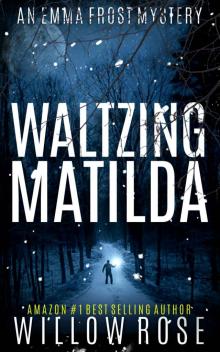 Waltzing Matilda (Emma Frost Book 11)
Waltzing Matilda (Emma Frost Book 11)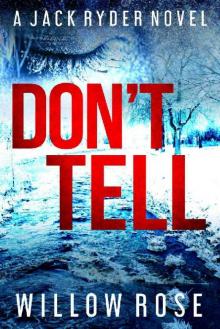 DON'T TELL (Jack Ryder Book 7)
DON'T TELL (Jack Ryder Book 7) TO DIE FOR (Eva Rae Thomas Mystery Book 8)
TO DIE FOR (Eva Rae Thomas Mystery Book 8) Eva Rae Thomas Mystery Box Set
Eva Rae Thomas Mystery Box Set Chaos and courage
Chaos and courage The Vampires of Shadow Hills Series: Book 4-6
The Vampires of Shadow Hills Series: Book 4-6 SUCH A GOOD GIRL: An urgently timely gripping mystery with a heartbreaking twist (Eva Rae Thomas Mystery Book 9)
SUCH A GOOD GIRL: An urgently timely gripping mystery with a heartbreaking twist (Eva Rae Thomas Mystery Book 9) War and Order
War and Order Blood and Fire
Blood and Fire Magic and Witchcraft
Magic and Witchcraft Beauty and Beasts
Beauty and Beasts HER FINAL WORD (JACK RYDER Book 6)
HER FINAL WORD (JACK RYDER Book 6) LET ME GO (Eva Rae Thomas Mystery Book 5)
LET ME GO (Eva Rae Thomas Mystery Book 5) Witchcraft and War (The Vampires of Shadow Hills Book 7)
Witchcraft and War (The Vampires of Shadow Hills Book 7)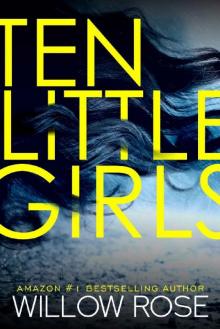 Ten Little Girls
Ten Little Girls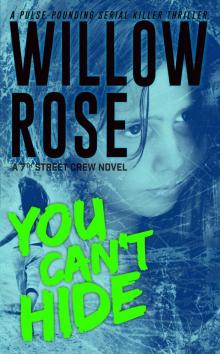 You Can't Hide: A pulse-pounding serial killer thriller (7th Street Crew Book 3)
You Can't Hide: A pulse-pounding serial killer thriller (7th Street Crew Book 3)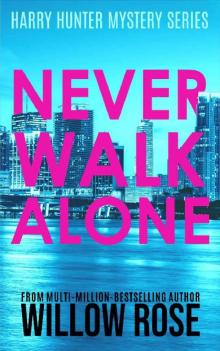 Never Walk Alone
Never Walk Alone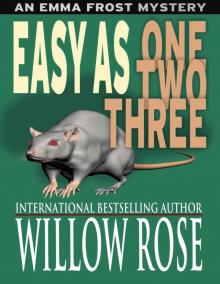 Easy as One Two Three (Emma Frost)
Easy as One Two Three (Emma Frost)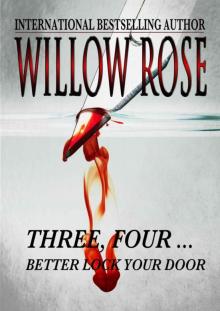 Three, Four ... Better lock your door. (Rebekka Franck #2)
Three, Four ... Better lock your door. (Rebekka Franck #2)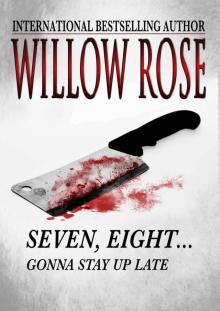 Seven, eight ... gonna stay up late (Rebekka Franck #4)
Seven, eight ... gonna stay up late (Rebekka Franck #4)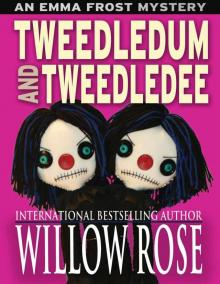 Tweedledum and Tweedledee (Emma Frost)
Tweedledum and Tweedledee (Emma Frost)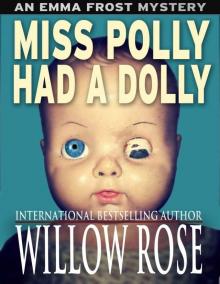 Miss Polly had a Dolly (Emma Frost #2)
Miss Polly had a Dolly (Emma Frost #2) Fire and Beauty
Fire and Beauty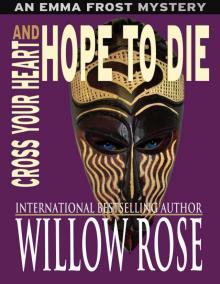 Cross your heart and hope to die (Emma Frost #4)
Cross your heart and hope to die (Emma Frost #4) Beyond (Afterlife book 1)
Beyond (Afterlife book 1) Jack Ryder Mystery Series: Vol 1-3
Jack Ryder Mystery Series: Vol 1-3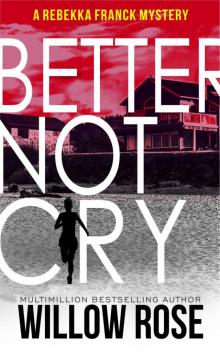 Better Not Cry (Rebekka Franck Book 8)
Better Not Cry (Rebekka Franck Book 8) Emma Frost Mystery Series Vol 7-9
Emma Frost Mystery Series Vol 7-9 Eleven, Twelve ... Dig and delve (Rebekka Franck Book 6)
Eleven, Twelve ... Dig and delve (Rebekka Franck Book 6)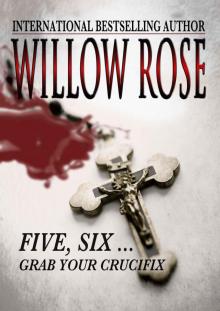 Rebekka Franck - 03 - Five, Six ... Grab Your Crucifix
Rebekka Franck - 03 - Five, Six ... Grab Your Crucifix It's Not Over
It's Not Over Harry Hunter Mystery Box Set
Harry Hunter Mystery Box Set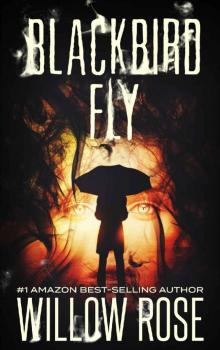 Blackbird Fly
Blackbird Fly One, Two ... He Is Coming for You
One, Two ... He Is Coming for You I am Wolf (The Wolfboy Chronicles)
I am Wolf (The Wolfboy Chronicles) Beasts and Magic (The Vampires of Shadow Hills Book 5)
Beasts and Magic (The Vampires of Shadow Hills Book 5) Courageous: Afterlife Book Four
Courageous: Afterlife Book Four NO OTHER WAY (Harry Hunter Mystery Book 3)
NO OTHER WAY (Harry Hunter Mystery Book 3) Flesh and Blood (The Vampires of Shadow Hills Book 1)
Flesh and Blood (The Vampires of Shadow Hills Book 1)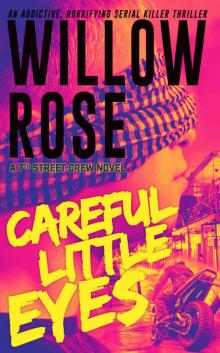 Careful little eyes: An addictive, horrifying serial killer thriller (7th Street Crew Book 4)
Careful little eyes: An addictive, horrifying serial killer thriller (7th Street Crew Book 4) Rebekka Franck Box Set
Rebekka Franck Box Set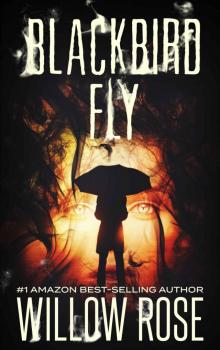 Blackbird Fly (Umbrella Man Trilogy Book 2)
Blackbird Fly (Umbrella Man Trilogy Book 2)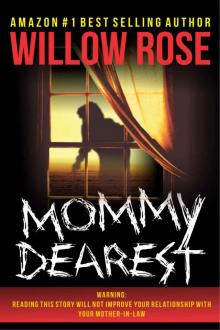 Mommy Dearest
Mommy Dearest Savage (Daughters of the Jaguar)
Savage (Daughters of the Jaguar) Jack Ryder Mystery Series: Vol 4-6
Jack Ryder Mystery Series: Vol 4-6 A Gypsy Song (The Eye of the Crystal Ball - The Wolfboy Chronicles)
A Gypsy Song (The Eye of the Crystal Ball - The Wolfboy Chronicles) The Bird
The Bird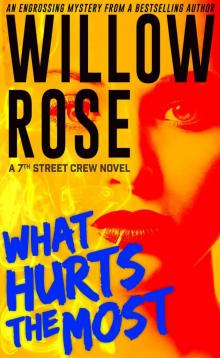 What Hurts the Most: An engrossing, heart-stopping thriller (7th Street Crew Book 1)
What Hurts the Most: An engrossing, heart-stopping thriller (7th Street Crew Book 1)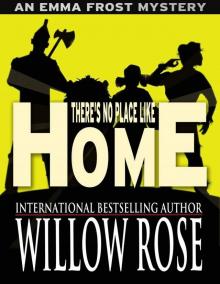 There's no place like HOME (Emma Frost Book 8)
There's no place like HOME (Emma Frost Book 8) Beasts and Magic
Beasts and Magic Flesh and Blood
Flesh and Blood Black Jack: A nail biting, hair-raising thriller (Jack Ryder Book 4)
Black Jack: A nail biting, hair-raising thriller (Jack Ryder Book 4) The Afterlife Series Box Set
The Afterlife Series Box Set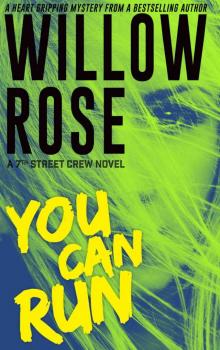 You Can Run: A heart gripping, fast paced thriller (7th Street Crew Book 2)
You Can Run: A heart gripping, fast paced thriller (7th Street Crew Book 2)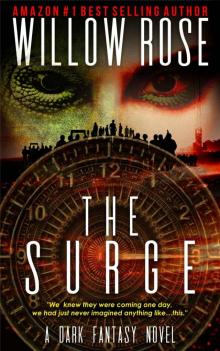 The Surge
The Surge It Ends Here
It Ends Here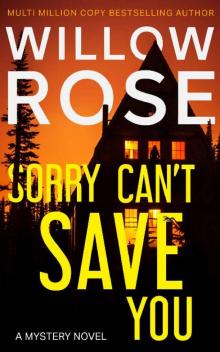 SORRY CAN'T SAVE YOU: A Mystery Novel
SORRY CAN'T SAVE YOU: A Mystery Novel The Afterlife series Box Set (Books 1-3)
The Afterlife series Box Set (Books 1-3)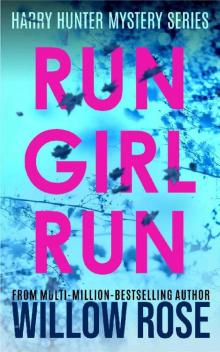 Run Girl Run
Run Girl Run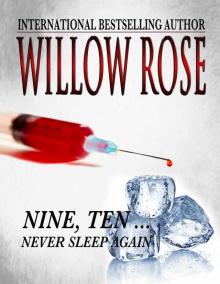 Nine, Ten ... Never sleep again (Rebekka Franck #5)
Nine, Ten ... Never sleep again (Rebekka Franck #5) Rebekka Franck Series Box Set vol 1-5
Rebekka Franck Series Box Set vol 1-5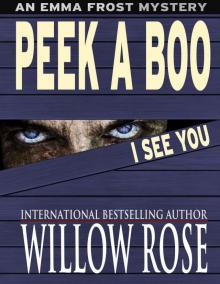 Peek A Boo I See You (Emma Frost #5)
Peek A Boo I See You (Emma Frost #5)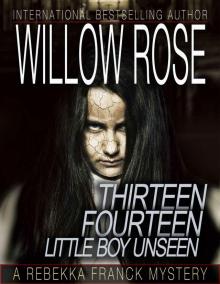 Thirteen, Fourteen ... Little boy unseen (Rebekka Franck Book 7)
Thirteen, Fourteen ... Little boy unseen (Rebekka Franck Book 7)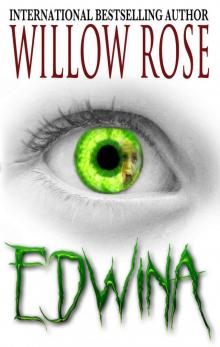 Edwina
Edwina Fire and Beauty (The Vampires of Shadow Hills Book 3)
Fire and Beauty (The Vampires of Shadow Hills Book 3)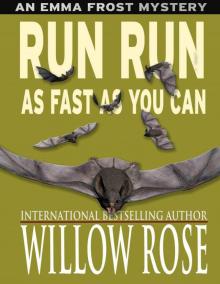 Run run as fast as you can (Emma Frost #3)
Run run as fast as you can (Emma Frost #3) Horror Stories from Denmark Box set
Horror Stories from Denmark Box set Rebekka Franck Series Box Set
Rebekka Franck Series Box Set Witchcraft and War
Witchcraft and War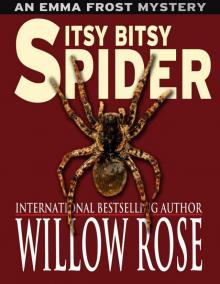 Itsy Bitsy Spider (Emma Frost #1)
Itsy Bitsy Spider (Emma Frost #1) One, Two ... He is coming for you (Rebekka Frank #1)
One, Two ... He is coming for you (Rebekka Frank #1)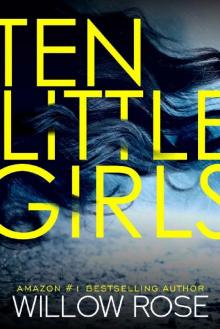 Ten Little Girls (Rebekka Franck Book 9)
Ten Little Girls (Rebekka Franck Book 9) Broken
Broken